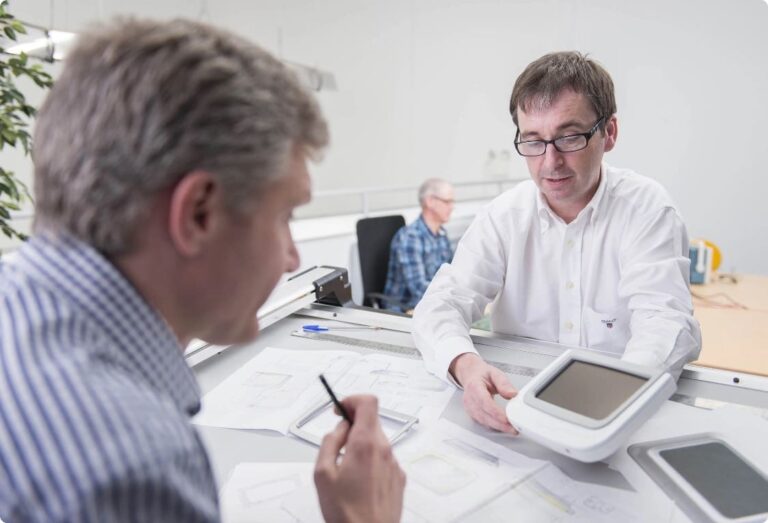In the UK, 1 in 14 people over the age of 65, and 1 in 6 over the age of 80, are estimated to be living with dementia
The emphasis for the health and social care sector is understandably to help and support ‘in place’ care for as long as possible, although inevitably a proportion of those living with dementia will require residential specialist care as their needs become more complex.
Technology can play a major role in benefiting those living at home with dementia, whether that be using touch screen devices to communicate with loved ones, playing games and puzzles or scheduling reminders to take medication. But it can also play a big role in a professional health care setting, supporting staff and managers as well as residents.
In the UK, the Care Quality Commission requires every care facility to keep accurate and up-to-date records and reports. Pre-technology these would usually have be hand-written paper records, which would take many administrative hours to file and retrieve when required. Opportunities to share knowledge and patient notes would often be missed, as would the ability to monitor and build behaviour patterns and insights.
These days with developments in software and data management, real-time data can be logged, stored, accessed, and analysed, as seen in the Intercall nurse call systems. While carers can track patient data to see if there’s a correlation between illnesses and causes of falls, helping reduce risk through minimising incidents and accidents, Managers can track data across single or multiple homes, making staffing, audits, and inspections much less of a headache.
When used in conjunction with the Intercall Safeguard system, the data generated can be used to identify resident behaviour patterns through targeted movement monitoring in individual rooms. The Safeguard thermal imaging sensor pairs with the call system (and used in conjunction with other assistive technology devices, such as a chair, bed, or pressure mat) and can be individually programmed to raise the appropriate alarm, especially helpful when caring for dementia patients prone to wandering and falling at night.
The Intercall cloud data-logging system can help managers uncover patterns from large amounts of data in a secure and easy-to-manage structure (including graphical charts), while data can be accessed remotely from anywhere in the world, and reports can be broken down hourly, daily, weekly, or monthly. Data security is paramount, which is why all data is encrypted and password protected ensuring a secure connection. With ongoing research and technical development, the old phrase ‘work smarter… not harder’ has never been more apt.
At Intercall we’re committed to ‘considered innovation’- innovation not for its own sake, but to make a positive impact in the daily lives of people, whether they be staff, managers, or residents. With an aging population and the numbers of those living with dementia looking set to increase, we’ve never been in greater need for considered technical innovation. Watch this space for future developments.


